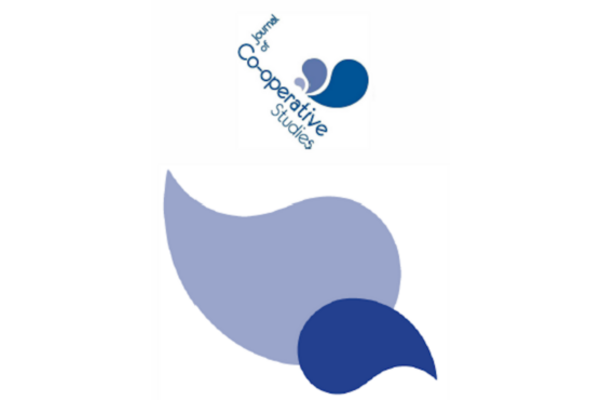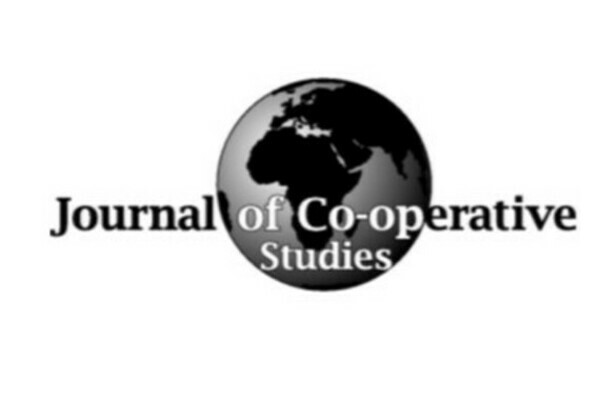Dr R.L. Marshall: An appreciation
Gillian Lonergan, p. 4
Dr Marshall's involvement in UKSCS (or the Society for Co-operative Studies as it was formerly known) began at its inaugural meeting in 1967. He served as editor or the Society for Co-operative Studies Bulletin (later the Journal of Co-operative Studies) for 1967-1995.
Refereed articles
Quality of internal controls in Trinidad and Tobago credit unions.
Anthony R. Bowrin and Raul Raghunandan, pp. 5-15.
This paper provides an assessment of the quality of intemal control (IC) among Trinidad and Tobago (T& T) Credit Unions (CUs) and examines factors that are associated with IC quality. Most of the information used in the paper was collected by conducting structured inteiviews with the chief operations officer of 60 randomly selected CUs. The data were analysed using a mixture of descriptive statistics, and multiple regression. The results indicate that the overall quality of IC in T& T CUs is barely "satisfactory" and is directly related to CU size, the nature of their charter bond, and the educational attainment of CU managers.
Encountering the evidence: Co-operatives and poverty reduction in Africa.
Frederick O Wanyama, Patrick Develtere and Ignace Pollet, pp. 16-27.
Discussion on the contribution of co-operatives to poverty reduction in Africa since the early 1990s has quite often been based on their potential role rather than the actual impact partly due to the dearth of empirical studies. This paper departs from such discussions to empirically demonstrate that co-operatives have significantly contributed to poverty reduction in Africa by, among others, mobilising and distributing financial capital; creating employment and income-generating opportunities; availing a forum for education and training; and creating solidarity schemes that cater for unexpected expenses related to illness, social welfare, death and other socio-economic problems.
Following a different mission: Where and how do consumer co-operatives compete?
Liro Jussila, Pasi Tuominen and Juha-Matti Saska, pp. 28-39.
Ownership makes a difference in managing a firm. It shapes the foundation of why the fim exists and, thus, affects the starting point for strategic management. While it is acknowledged that managing a consumer co-operative differs from management of mainstream organisations, there are few studies explicitly explaining how that difference relates to the distinctive features of ownership. It is toward that end this paper is directed. We begin with comments on the elements and aspects of co-operative ownership, which are followed by the definition of consumer co-operatives' two-fold mission. Next we use literature on strategy and consumer co-operation to examine how that mission may be followed in terms of corporate and business strategy. Our aim is to provide a useful framework for researchers, practitioners and/or students of consumer co-operatives. We conclude with suggestions for future research and managerial implications.
Short papers
The Co-operative Societies of South Wales Collection at Swansea University.
Katrina Legg, pp. 42-45.
The Co-operative Societies of South Wales Collection (collection reference SWCC/MND/137) held at Swansea University Archives has recently been catalogued. It comprises a diverse range of material relating to the history of co-operative societies in South Wales: minute books, title deeds, reports and balance sheets, correspondence, staff and society papers, publications, photographs, research notes and ephemera. It is now being brought to public attention and it is hoped to encourage further investigations into the history of the co-operative movement and individual societies in South Wales as this appears to have been underresearched in the past.
The co-operative economy – co-operative performance 2007/2008.
Alan Middleton, pp. 46-51.
One of the key roles of Co-operatives UK, formerly the Co-operative Union, is to monitor the performance of its member retail consumer societies. This key area of work has been greatly refined of late with the publication of the Co-operative Review which is now the most comprehensive report on the size and scope of co-operative enterprise in the UK. The UK Society for Co-operative Studies has had a long tradition of reviewing the movement's statistical performance with Professor Noel Branton, Ted Stephenson and James Wood coming to mind with their regular and excellent analysis of our movement's performance over 20 years ago. This task in 2008 has fallen on the broad shoulders of Alan Middleton. Alan knows a thing or two about society performance having 40 years experience on the Board of his local society - Lincolnshire Co-operative, one of the movement's outstanding success stories. Alan's analysis is frank, honest and some might say controversial in places but is essential reading for all directors. Hopefully, this article will spark others into joining this important debate.
Book reviews
New Views of Society: Robert Owen for the 21st Century. Edited by Richard Bickle and Molly Scott Cato.
Reviewed by Chris Hart, pp. 52-53
Integrating diversities within a complex heritage: Essays in the field of cooperative studies. Edited by Ian MacPherson and Erin McLaughlin-Jenkins.
Reviewed by Len Arthur, pp. 54-55
Slaney’s Act and the Christian Socialists: A study of how the Industrial and Provident Societies Act 1852 was passed. By David Lambourne.
Reviewed by Molly Scott Cato, p. 56










